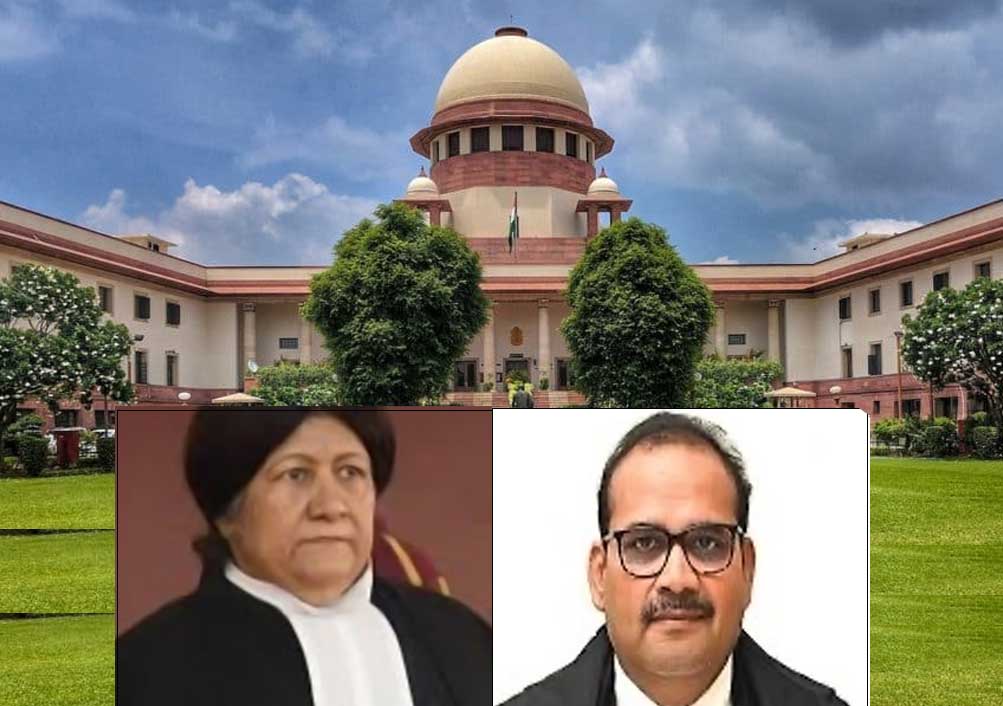Apex Court pronounces split verdict on requirement of prior permission of jurisdictional Magistrate to investigate into offence u/s 23 of POCSO Act for disclosing victim’s identity

Read Judgment: Gangadhar Narayan Nayak vs. State of Karnataka & Ors.
Pankaj Bajpai
New Delhi, March 23, 2022: Observing that a child against whom offence u/s 23 of POCSO Act has been committed, by disclosure of her identity, may require special protection, care and even shelter, necessitating expeditious investigation for compliance of Sections 19(5) & (6), the Supreme Court has delivered a split verdict on the need of prior permission of jurisdictional Magistrate to investigate into offence u/s 23 of such Act.
The Division Bench of Justice Indira Banerjee and Justice J.K Maheshwari had a difference of opinion on the issue of sustainability of investigation absent prior permission. Justice Banerjee emphasized that the entire object of provisions such as Section 228A of the IPC, Section 327(2) of the CrPC, Section 74 of the Juvenile Justice (Care and Protection of Children) Act, 2015 and Section 23 of POCSO Act is to prevent disclosure of the identity of the victim and that the identity of the victim should not be discernible from any matter published in the media.
Going by the background of the case, in the year 2017, a news report was published in the Karavali Munjavu Newspaper regarding the sexual harassment of a 16 year old girl naming the victim in the said report. Accordingly, the victim’s mother lodged a complaint against the Appellant, an Editor of Newspaper, u/s 23 of POCSO, pursuant to which a criminal case was registered against the Appellant.
After investigation, the Police filed a report u/s 173 of CrPC and the Court of the Principal District Judge, Uttar Kannada, took cognizance of the offence alleged and directed that summons be issued to the Appellant. Thereafter, the Appellant filed an application for discharge u/s 227 of CrPC contending that an offence u/s 23 of POCSO being non-cognizable, the police could not have investigated the offence without obtaining an order of the Magistrate u/s 155(2) of CrPC.
The matter reached High Court, which held that the non obstante provision of Section 19 of POCSO overrides the provisions of CrPC including Section 155 thereof, and therefore, refused to quash the proceedings initiated against the Appellant u/s 23 of POCSO.
After considering the submissions, Justice Indira Banerjee found that Section 5 of the CrPC categorically states that nothing in the Code shall, in the absence of a specific provision to the contrary, affect any special law for the time being in force, or any special jurisdiction or power conferred, or any special form of procedure prescribed by any other law for the time being in force.
“The language and tenor of Section 19 of POCSO and subsections thereof makes it absolutely clear that the said Section does not exclude offence under Section 23 of POCSO. This is patently clear from the language and tenor of Section 19(1), which reads “…. Any person who has apprehension that an offence under this Act is likely to be committed or has knowledge that such an offence has been committed……”. The expression “offence” in Section 19 of POCSO would include all offences under POCSO including offence under Section 23 of POCSO of publication of a news report, disclosing the identity of a child victim of sexual assault”, added the Bench.
Justice Banerjee clarified that legislative intent is to be construed from the words used in the statute, as per their plain meaning, and had Legislature intended that the Cr.P.C. should apply to investigation of an offence u/s 23 of POCSO, would specifically have provided so.
The expression “investigation” would, as in Section 4(1) or (2) of CrPC have expressly been incorporated in Section 31 or Section 33(9) or elsewhere in POCSO, added the Bench.
Justice Banerjee was unable to accept the appellant’s argument that the proceedings were vitiated and liable to be quashed or the appellant was liable to be discharged without trial, only because of want of prior permission of the jurisdictional Magistrate to investigate into the alleged offence.
However, in his dissenting opinion, Justice Maheshwari noted that the ‘trial flows cognizance and cognizance is preceded by investigation’, which is the basic scheme for the Court to cognizable cases.
It does not necessarily follow that an invalid investigation nullifies the cognizance or trial based thereon, added the Bench.
Therefore, Justice Maheshwari clarified that the procedure of Section 155(2) is required to be followed in an offence of POCSO Act u/s 23 which is non-cognizable and the Special Court is required to look into the procedure followed in the investigation.
Justice Maheshwari therefore concluded that the order taking cognizance and to pass consequential order rejecting the application for discharge is not in accordance with law.
Sign up for our weekly newsletter to stay up to date on our product, events featured blog, special offer and all of the exciting things that take place here at Legitquest.




Add a Comment